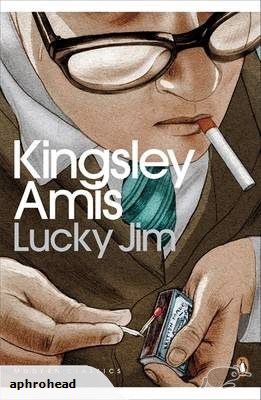
Evelyn Waugh and Nancy Mitford, in a series of letters exchanged between them around the date of the first publication of Lucky Jim, expressed their deep contempt for the "proletarian louts" who found "employment as critics, even as poets and novelists." In one of these letters, Mitford voices her feeling about Amis most frankly: "I've never understood this thing about Amis. Somerset Maugham, though praising the novel as a whole, did not like its sympathetic portrayal of a representative of "the white-collar proletariat" who goes to the university not "to acquire culture, but to get a job" (qtd. Priestly, who felt uncomfortable about Lucky Jim and the majority of its contemporary novels because of their "artistic and political transgressions" and "eliberately unheroic" protagonists (105). One of these critics, according to Keulks, is J. Negative responses to Lucky Jim came, for the most part, from a coterie of critics who, in Keulks's words, "denigrated the novel for ushering in a new way of literary and cultural philistinism, a burgeoning class war" (107).

In short, Lucky Jim was one of the most influential novels of its age, a fact confirmed by Merritt Moseley, who has referred to it as one of the "key books of the English 1950s" (18-19). Though Amis never meant it to be a sociological document, it was fated to be "required reading on university Sociology courses" in the United States for a while (McDermott 20). By February 1956, only a little more than two years after its initial publication, Lucky Jim was already "into its sixteenth impression, a success story rarely equaled in contemporary fiction" (Wilson 68). The same source tells of attempts made at purchasing the radio adaptation and film rights of the novel by such well-known corporations as the BBC and famed directors as Alfred Hitchcock, Sidney Bernstein, and John and Roy Boulting before the year 1954 had come to an end (101-02). It was positively reviewed by such eminent scholars as Sean O'Faolain, Walter Allen, John Betjeman, Anthony Powell, and Edmund Fuller (Keulks 102).

Of course, the general response was favorable.


When Lucky Jim first appeared in 1954, it received varied responses from different classes of readers and critics.


 0 kommentar(er)
0 kommentar(er)
